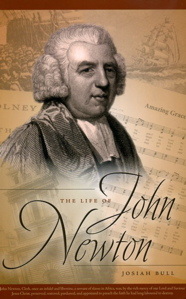|
I came across a blog post this week from missionaries in Papua New Guinea. They shared: “'You must respect Mother Mary.' This is the first thing that my friend Philip told me as I greeted him today. The day before I had called him during Catholic mass unknowingly and today he was telling me that I must respect the Catholic religion. We talked a little more about other things for a while, he invited me to have some saksak and stay over for some dinner but then he told me I must go. He told me that he had to go heal someone from a sickness they had that lived close to our place. I thought he meant maybe something like malaria or the common cold but he told me that someone had given them the sickness with the spirit he called Masalai. He grabbed some tangat leaves ,his Bilum, and his Bush knife and we headed back to our place. He told me he must take these leaves to the person and speak the name of the Spirit into leaves and that the Spirit would leave the man’s body. This is the kind of thinking that plagues the people of Papua New Guinea. Religion has influenced them a little, yet they hold on tightly to animistic beliefs; afraid of all the spirits that are around them. This is the result of poor teaching and lack of understanding about the culture that they are teaching in. You’ll hear words like Jesus, God, and heaven but they don’t understand anything about what they mean and how it affects their lives. This is why we came, to give them the understanding of what the Scriptures really say and to free them from the fear of animism and the spirits that they hold onto. This was a good reminder today, as I am learning language and culture to remember the big picture of why I am here and what I am here to do." When I read the third paragraph in particular I thought about how it could apply to we here in the U.S. We are a people who have been influenced a little by religion but hold onto our own idols and fears; mixing our faith with New Age and all manner of other things. You could say of many of us here as well, "You’ll hear words like Jesus, God, and heaven but they don’t understand anything about what they mean and how it affects their lives." In our desire to be free to speak about God we have taken the bite out of the Gospel leaving many people with the idea that God wants to improve your life on earth- give you your "best life now" when the result of the true Gospel is a focus on God and not ourselves. I have no doubt God wants to bless me, but I did not give my life to Christ to serve my needs but to serve my Savior. My best life is yet to come! New on the site this week:Freebie Thursday- Sharing patterns from three of my favorite quilters. My look at Psalm 119 continues with: Psalm 119:73-80 Psalm 119:81-88 Psalm 119:89-96- Psalm 119:97-104 Happy New Year-Part 2- more photos from our trip Good Reads from Around the WebWhy Millenials are Leaving the Church: a response-"Truth be told, I don’t want a church that serves my preferences. I want a church that gives me Jesus and makes me want to serve His. " Interesting read from Trevin Wax on The Gospel Coalition website. He wrote a post in response to a piece that was written by Rachel Held Evans.
A Softer Propserity Gospel: More Common Than You Think- "In the end, the tragedy of the soft prosperity gospel is the way it focuses so much on earthly improvements. By offering Christians their best life now, the eternal realities of heaven and hell are lost. This brings the very real possibility that many who hear the soft prosperity gospel are and will remain lost." Is Church Growth All ABout the Pastor? -"the only thing the Bible consistently holds up as the measuring rod for pastors is not their skill in preaching, though they must be able to teach. It is their character." Interesting thoughts by Aaron Armstrong about how we measure success in the church. The Shocking Secret to Finding God's Will -Another one by Aaron Armstrong. This was my favorite read this week. I would love to hear your thoughts on any of these. Wishing you a blessed weekend, Deb
0 Comments
Consider the Public This next section of John Newton's letter addresses the public nature of the proposed method the inquirer sought to address the pastor with whom he disagreed. I find within it much to consider when I post my thoughts on blogs or even on facebook. There are times when we engage in discussions of a spiritual nature on the various social networks and just as the pastor that Newton was writing to we need to bear in mind who the hearers might be. I recently commented on a friend's post about an issue related to how we as Christians ought to observe Christmas. I wished to support her in her desire to make Christ the heart of it and lay aside the focus of Santa, Elf on the Shelf, etc. I knew she was a believer and my response sought to encourage her and at the same time acknowledge that not all will share our convictions in this area-even other Christians will think we are foolishly depriving our children. The only one who will convict and convince of these things is God Himself and unless He does so then we will continue to look foolish to them. I made the mistake of saying in essence that they were the ones who were actually foolish and only God could straighten them out. While that is true, the problem with putting these things in writing is that people read their own tone and intent into it and if we are not careful with our word choice we can leave them with a very bad impression. That is what happened in the discussion that followed. Everyone reading my friend's post was not like-minded. Some were not even believers. That is the point that Newton is making here- while we may write with a particulal indiviual in mind, the public nature of our engagement means that we need to be aware of those who will also be reading it as well. Newton identifies three types of people who make up our audience. In the particular case he was addressing, the first person is the one with whom we disagree and those who share his opinions. He reminds his reader to keep in mind those ideas I shared in Part 1. Next are those "who pay too little regard to religion, to have any settled system of their own, and yet are preengaged in favor of those sentiments which are at least repugnant to the good opinion men naturally have of themselves. These are very incompetent judges of doctrine; but they can form a tolerable judgment of a writer’s spirit. " These are people who know what a Christian should look like and demonstrate as far as humilty, meekness, and love and will be quick to point out our lack of it if we are not careful. Newton says, "They are quick-sighted to discern when we deviate from such a spirit, and avail themselves of it to justify their contempt of our arguments." I can say with experience, yes they do! We need to be very careful in our discussions to maintain humilty throughout. If we engage in angry, embittered discussion Newton says we will discredit rather then further the "cause of truth." That is a point I really need to learn! I can become very self-righteous if I am not careful and be no better than the Pharisees of Jesus day. The third type of people who make up our audience are those who agree with us. Even with this audeince we have the oportunity to edify or bring harm. Newton makes this inportant observation, "There is a principle of self, which disposes us to despise those who differ from us; and we are often under its influence, when we think we are only showing a becoming zeal in the cause of God." In other words we often do not play nice with those who have differing opinions and the way we handle them can have an affect on even those with whom we agree on the issue at hand. He closes this portion of the letter with this point: "Yea, I would add, the best of men are not wholly free from this leaven; and therefore are too apt to be pleased with such representations as hold up our adversaries to ridicule, and by consequence flatter our own superior judgments. Controversies, for the most part, are so managed as to indulge rather than to repress his wrong disposition; and therefore, generally speaking, they are productive of little good. They provoke those whom they should convince, and puff up those whom they should edify. I hope your performance will savor of a spirit of true humility, and be a means of promoting it in others." Now if that is not a warning to reconsider jumping into the fray if I ever saw one. We really need to decide on these clearly controversial issues whether or not to even share our mind. And if we do it needs to be solely from a place that means to instruct for good and not because we feel the need to defend our viewpoint to feel superior. And above all it must be done in complete humility. Now if only I will take the time to consider all of these things before hitting "publish." Grace, peace, and mercy, Deb |
AuthorI am a wife, a mother, a quilter, and most of all a follower of Jesus Christ. Join me on facebookFollow me on TwitterCategories
All
Archives
March 2016
|




 RSS Feed
RSS Feed